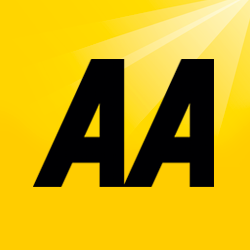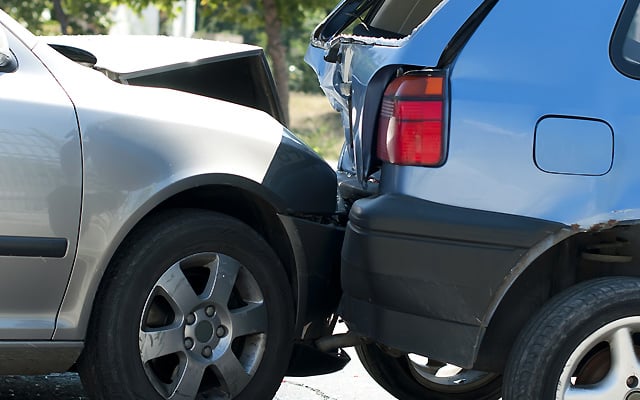If you're involved in a collision, there are some steps you must take no matter who was at fault. Here’s what to do after you’ve had a car accident.
In this article |
What to do immediately after the accident
1. Stop the car as soon as possible
- It’s against the law to drive away following an accident.
- Turn off the engine.
- Switch the hazard lights on.
2. Check for injuries
- Check for any injuries to yourself or your passengers.
- If it's a minor collision and there are no injuries, make a note of it just in case the other people later try to claim for an injury.
- Call the police and an ambulance immediately if anyone is hurt or if the road is blocked.
3. Try to remain calm
- Try to remain as calm as possible – its normal to be shaken after an accident.
- Take a few deep breaths and try to take stock of the situation the best you can without losing your temper.
4. Exchange details
Exchange details with anyone involved in the accident (including witnesses). Get their:
- Name
- Address
- Telephone number
- Vehicle registration number
Don't apologise or admit responsibility for the crash until you're completely aware of what happened – this can protect you from liability if it wasn't your fault.
Had an accident? Contact us first.
If you’re an AA member, we can help
If you're in an accident and have breakdown cover or car insurance with us, we'll help you with your claim – no matter which company insures you. Our team’s here for you 24/7 and we'll take care of everything from recovery to repair, liaising with insurers on your behalf and getting you back on the road.
When should I call the police?
After a car accident, things can often be resolved without calling the police if no-one’s injured and the other people involved co-operate with you. But it’s necessary to call the police if:
- The other driver or drivers leave the scene without giving details.
- You think the other driver has no insurance or is under the influence of drink or drugs.
- You suspect that the other driver caused the collision deliberately.
Tell the police about the accident within 24 hours – if you don't you may be given a fine, points on your licence, or a disqualification from driving.
How to exchange motoring details after an accident
Exchanging details at the scene of a car accident is very important. You’ll need to do this to sort out insurance and it may be required by law.
- Share your name and address with everyone involved if the accident caused damage or injury – the law says you must do this.
- Swap insurance information and details with the other driver(s).
- Take down details of any other passengers and witnesses to the accident.
- Try to find out if the other driver's the registered owner of the vehicle. If they're not, find out who the owner is and get that information too (for instance, it might be a company car).
- If a foreign lorry's involved, get the numbers on both the lorry and its trailer, sometimes they are different. Its also a good idea to get the name of the company if its painted on the lorry.
You should still leave your details even if no one else is involved in the accident. For example, if you caused damage to private property or a parked car, you should leave a note with your details where the owner can see it.
Honesty pays - if you drove off but a witness or CCTV camera saw you and noted your car number, you could land yourself in trouble.
What should I record at the accident scene?
It’s understandable to feel shaken after a car crash. Try to stay calm and remember to take down as many details as possible to help you later. You can use your phone to take pictures of the scene, the positions of the cars involved, and damage to the cars.
If you have a dash cam in your car, store the incident details and video footage. These could be used later to help decide who was liable, if required.
For all the vehicles and people involved in the accident, take down the following details or photos:
Vehicle details
- Make
- Model
- Colour
- Number plate
Details about the circumstances
- Time and date of the crash.
- Driving conditions, lighting and weather.
- Road quality, such as road markings, whether its wet or muddy, repair of the road surface.
Details about vehicle damage
- What sort of damage was caused to the vehicles.
- Where the damage is, for example nearside front wing and door (nearside is the left side of your car, offside is the driver's side).
Details of any injuries
- Any injuries to drivers, passengers, or pedestrians.
Contact details of any witnesses
Making a Claim
Anyone who's been involved in a road accident has the right to choose who repairs their vehicle. You can choose to either claim on your own car insurance policy or make a claim independently of your insurer.
If you’re not an AA member, you can call your insurer after an accident to discuss your options. If you are an AA member, you can choose to call us first and we’ll handle everything, including liaising with insurers. Alternatively, you can choose to contact your insurer directly.
Making a claim to your insurance provider
If you choose to claim directly through your insurer, you'll need to contact them to report the claim. They’ll ask for:
- Your policy number.
- Details of the accident.
- The registration number of cars involved.
- The driver's name, address and phone number.
- The driver's insurance details, if you have them.
- To keep your no claims discount intact, if you don't have a 'protected no claims discount'.
- If you decide to pay for the repairs yourself.
Even if you don’t want to claim yourself, you should report the accident to your insurance company within a reasonable time. If you don't, it could breach the terms and conditions of your insurance.
How we can help with making a claim
If you have breakdown cover or car insurance with us, we'll liaise directly with your insurer if you choose to use our services for accident management. You can call our Accident Assist team 24 hours a day, 7 days a week for support and advice following an accident. We'll take the hassle out of making an insurance claim and get you back on the road again.
Just ring us on 0330 053 0221
We can also support you with roadside recovery, vehicle repair and vehicle replacement while yours is being repaired. Find out more about what’s included with Accident Assist.
Dealing with crash-for-cash claimants
Crash-for-cash claimants are people who deliberately arrange accidents in order to make a fraudulent insurance claim. They may do this by:
- Braking unexpectedly, causing you to go into the back of their car.
- Flashing their lights to indicate you're free to go before purposely crashing into you.
They might also take out their brake light bulbs, so you won’t have a warning when they hit the brakes in front of you and will be more likely to crash into them.
Crash-for-cash claimants will usually blame you for the accident and give you their insurance information, which is sometimes written out ready on a bit of paper.
A few weeks after this happens, you might receive a letter from your insurance company highlighting the damage from the accident. The claims can be exaggerated (sometimes including recovery vehicle, car hire, or whiplash injuries to others that haven't occurred) to maximise the money they try to win back.
How to avoid car crash scams
You'll be less likely to be involved in such a scam if you keep your eyes open and:
- Be especially careful in stop to start traffic, at merging junctions and roundabouts.
- Leave plenty of space between you and the car in front.
- Be wary of erratic driving behaviour such as slowing for no reason.
- Take note if their brake lights don't seem to be working and increase your distance.
Some drivers install dash-cams to show their innocence against a crash-for-cash claim. These can be very helpful in establishing proof of a crash-for-cash claim.
Published: 23 November 2016 | Updated: 30 November 2020 | Author: The AA

